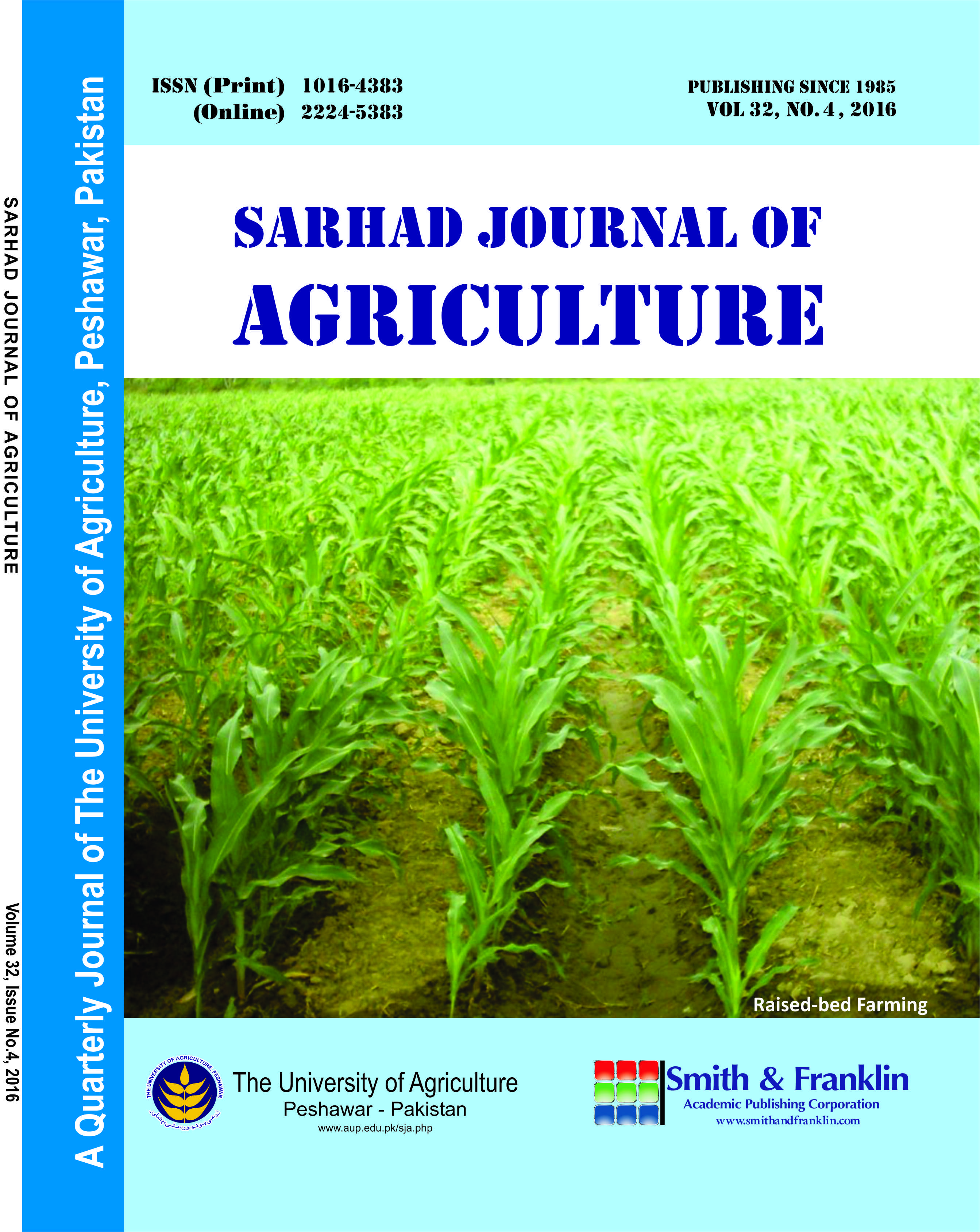An Evaluation Study for Chlorophyll Estimation Techniques
An Evaluation Study for Chlorophyll Estimation Techniques
Kawa A. Ali1*, Sazar S. Noraldeen2 and Arshad A. Yaseen2, 3
ABSTRACT
A field experiment was conducted to evaluate the efficacy of two destructive and two nondestructive chlorophyll estimation techniques for two vegetable crops (aroma tomato Solanum lycopersicum L. and green pepper Capsicum annuum L.) in three different environments (open field, lath house and plastic house) to indicate the best method of chlorophyll estimation. After 80 days from sowing chlorophyll estimation was implemented first by nondestructive methods using SPAD (SPAD-502 Plus Konica Minolta Tokyo, Japan) and atLEAF chlorophyll meter (at-LEAF FT-GREEN-LLC Willington, DE, USA) instruments, then the same leaves were cut and chlorophyll estimation were done by destructive methods using two organic solvents ( 80% acetone and 100% ethanol). Results demonstrate significant differences between SPAD and atLEAF data for tomato and pepper plants where higher levels with atLEAF instrument comparing to SPAD chlorophyll meter. Higher chlorophyll levels were recorded in open field plants comparing to lath and plastic houses plants. Chlorophyll a content was related to carotenoid levels in both destruction methods. There was positive correlation between SPAD and atLEAF. Nondestructive methods could be used as an alternative method for destructive methods.
To share on other social networks, click on any share button. What are these?








